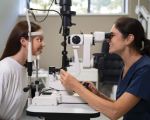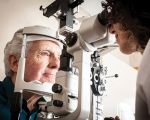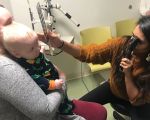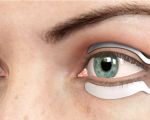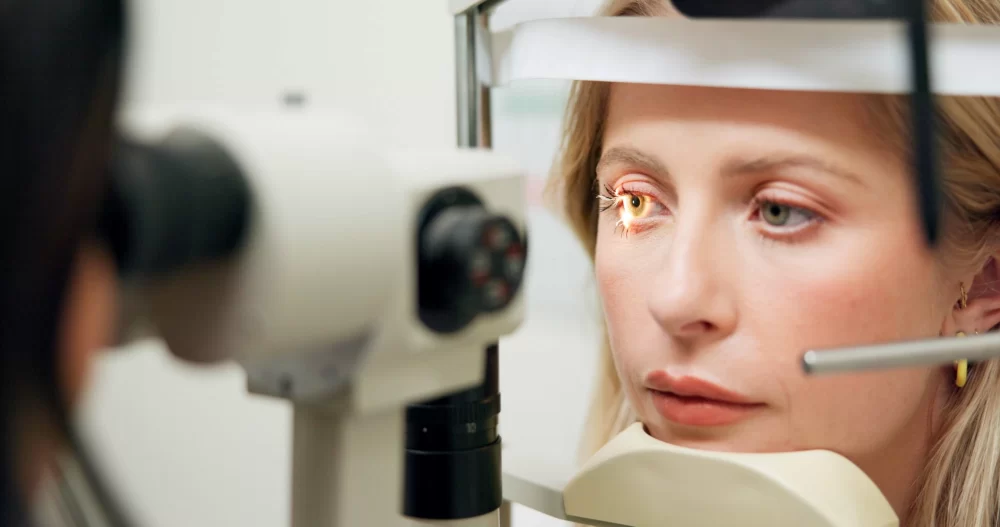
Choosing the Best Optometrist for Eye Exams in My Area
As someone who values my vision, I know how important it is to find a reliable optometrist for regular eye exams. In today's world, where screen time is at an all-time high, taking care of our eyes is more critical than ever. Eye exams are essential not only for maintaining good vision but also for detecting early signs of serious conditions such as glaucoma, cataracts, and even some types of eye cancers. In this article, I’ll share my personal journey of finding top-rated optometrists and offer some helpful tips to ensure you get the best eye care available.
Why Regular Eye Exams are Crucial
Many people only visit an optometrist when they notice their vision changing. However, this is not the best approach. Regular eye exams help catch issues early before they become more complicated. I remember a few years ago when I went in for a routine check-up, expecting nothing more than an update on my prescription. To my surprise, the optometrist detected early signs of astigmatism. Had I waited longer, my condition could have worsened, affecting my daily activities.
Eye exams are also essential for preventing eye diseases that don't always show obvious symptoms. For instance, glaucoma often progresses slowly without noticeable pain, but it can lead to permanent blindness if left untreated. The early detection of such diseases through routine eye exams can save your vision and, in some cases, even your life.
What to Look for When Choosing an Optometrist
When it comes to finding the right optometrist, there are a few key factors I always keep in mind. First and foremost, I look for professionals who are highly rated and recommended by others. After all, patient satisfaction is often a reflection of the quality of care provided. Here are some of the factors I consider when choosing an optometrist:
- Experience and Qualifications: It’s important to choose an optometrist who has the necessary qualifications, such as a Doctor of Optometry (OD) degree, and experience in treating a variety of vision issues.
- Patient Reviews: Reading reviews from other patients is one of the most effective ways to gauge the quality of an optometrist. Look for an optometrist with a solid reputation for professionalism, friendliness, and thoroughness.
- Technology and Facilities: I also consider the technology available at the clinic. An optometrist who uses the latest equipment is more likely to provide accurate results and offer advanced treatment options.
- Location and Accessibility: Convenience matters too. I prefer optometrists who are located nearby, making it easier for me to schedule and attend appointments without hassle.
- Comprehensive Services: A good optometrist should offer a wide range of services, including routine eye exams, contact lens fittings, and treatment for various eye conditions.
Finding Top-Rated Optometrists in My Area
One of the best ways to find top-rated optometrists in my area is to use online resources. Websites such as Yelp, Google Reviews, and Healthgrades provide honest reviews and ratings from real patients. I typically start by narrowing down my options based on the reviews and checking the ratings for consistency. If an optometrist has consistently positive feedback, chances are they provide excellent care.
In addition to reviews, many optometrists now offer online booking, which makes scheduling an appointment quick and easy. Some even offer virtual consultations, allowing you to discuss your eye care needs from the comfort of your own home. This is especially helpful for those with busy schedules or individuals who may have trouble leaving their homes due to mobility issues.
A Personal Experience: Finding the Right Optometrist
When I was in search of a new optometrist, I had a particular set of criteria in mind. I needed someone who could help me address my frequent headaches, which I suspected were linked to eye strain. After reading through several reviews, I found an optometrist nearby who had rave reviews for his ability to diagnose and treat eye-related headaches.
The visit was eye-opening (no pun intended!). The optometrist conducted a thorough eye exam and explained how my prescription could be adjusted to alleviate the strain. After just a few weeks of using my new prescription, I noticed a significant reduction in my headaches. It was such a relief to know that a simple change in my eyeglasses could solve a problem that had been affecting my daily life for months.
What to Expect During an Eye Exam
If you’ve never had an eye exam before, it’s understandable to be a little nervous. However, there’s no need to worry! The process is straightforward and painless. Typically, the optometrist will ask about your medical history and any vision problems you’ve been experiencing. Next, they’ll conduct a series of tests, including reading letters on an eye chart, testing your peripheral vision, and measuring the pressure in your eyes to check for signs of glaucoma.
Throughout the exam, the optometrist will discuss their findings with you, explaining everything in detail. If you need glasses or contact lenses, they’ll help you choose the right prescription. They may also recommend other treatments, such as eye exercises or specialized lenses, depending on your needs. I always appreciate how thorough my optometrist is, making sure I understand each step of the process.
Eye Care Beyond the Exam
In addition to regular eye exams, maintaining good eye health involves a few simple habits. I’ve found that protecting my eyes from UV rays, eating a healthy diet rich in vitamins and antioxidants, and taking regular breaks from screens have made a big difference in my overall eye health. It’s easy to take our eyes for granted, but taking proactive steps now can help prevent issues down the road.
One of the best pieces of advice I received from my optometrist was to follow the 20-20-20 rule. Every 20 minutes of screen time, look at something 20 feet away for at least 20 seconds. This simple practice helps reduce eye strain and prevents fatigue from prolonged computer or phone use.
Conclusion
Choosing a top-rated optometrist for eye exams is an important decision that can have lasting effects on your eye health. By considering factors such as experience, patient reviews, technology, and services offered, you can find the best care for your eyes. Regular eye exams and healthy eye habits can help ensure that your vision stays clear and sharp for years to come. I hope this article has given you some helpful insights on how to find the right optometrist and take better care of your eyes.


